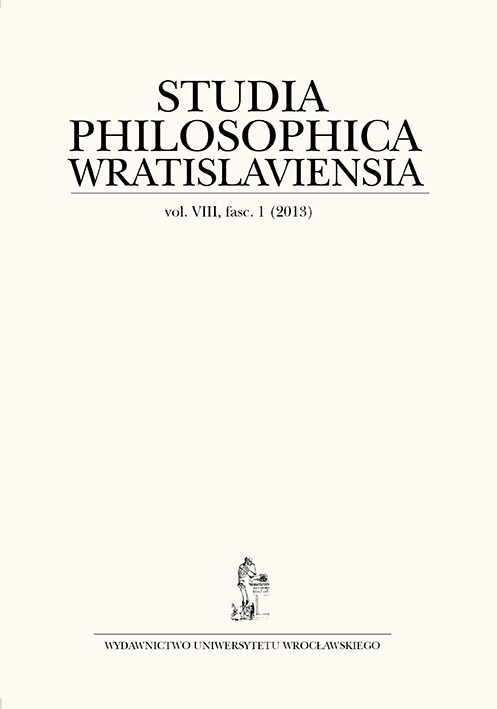

Artykuły

Two independent ethics: Ethics of the reliable custodian and ethics of simple-mindedness
The article compares the ethical views of Tadeusz Kotarbiński and Józef Bańka. The conceptions of ethics of these two thinkers are independent from religion and from philosophical outlooks. The author claims that Bańka’s ethics of simple-mindedness simple-mindedness being the closest English term to the Polish neologism prostomyślność is more eudaimonistic and individualist, whereas Kotarbiński’s ethics of the reliable custodian a translation of Kotarbiński’s opiekun spolegliwy is more perfectionist and socially oriented. Moreover, Bańka, the author of the philosophy of recentivism, devotes a significant part of his ethical view to the problem of worldly happiness, whereas Kotarbiński, the author of the philosophical reism, has viewed favourably the epicurean idea of happiness as a lack of suffering, alongside the idea that the reliable custodian is capable of assuring people that they can count on his concern. Both analyzed conceptions of ethics are atheistic. However Kotarbiński, the author of Medytacje o życiu godziwym, differs from Bańka in that his views are close to the Christian ethics, especially to the command of the love of one’s neighbour. Both philosophers differ in their attitude towards technology. Kotarbiński is generally in favour of progress and development of humankind, while according to Bańka technology seems to be a grave threat for the moral and psychological constitution of man, therefore it has to be placed under control. The ethics of the reliable custodian is more concerned with the external, while the ethics of simple-mindedness — the internal sphere of human being. The author claims that both systems of ethics may be seen as complementary since they have more in common than oppose each other, and that they are more in agreement than contest each other. Undoubtedly both ethics are pertinent for contemporary man and may serve as an important signpost in human unceasing struggle with serious moral problems.